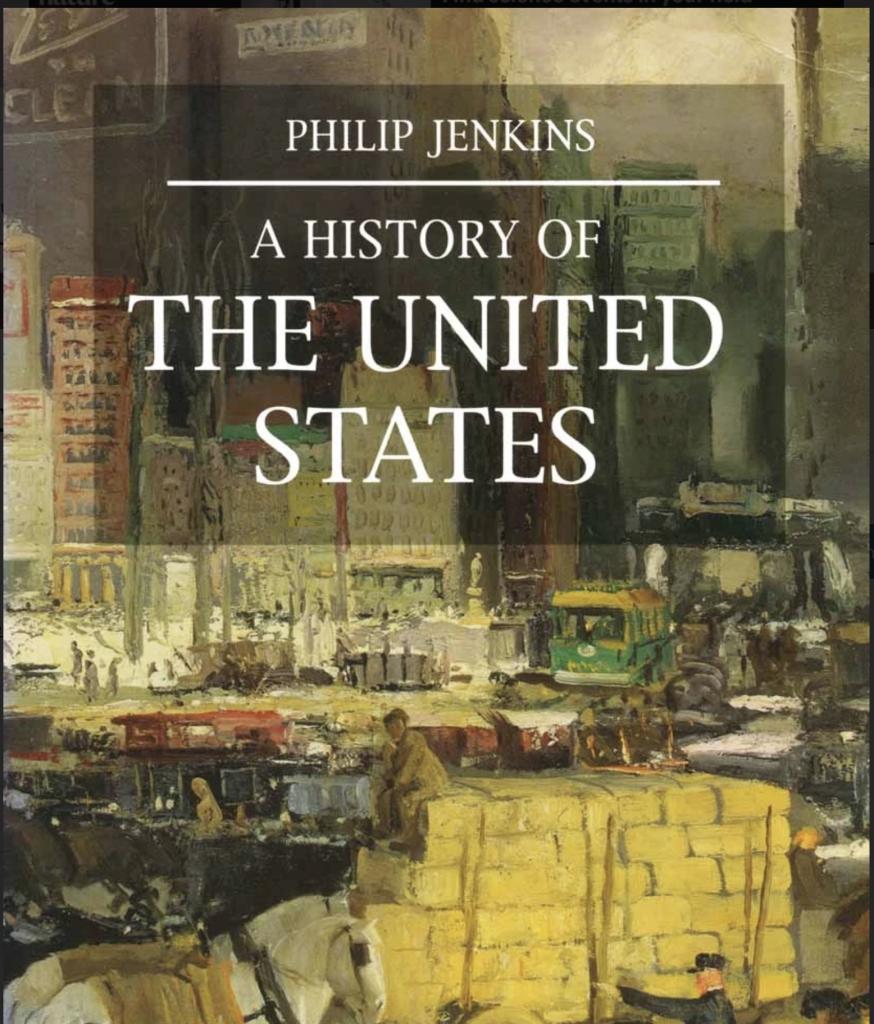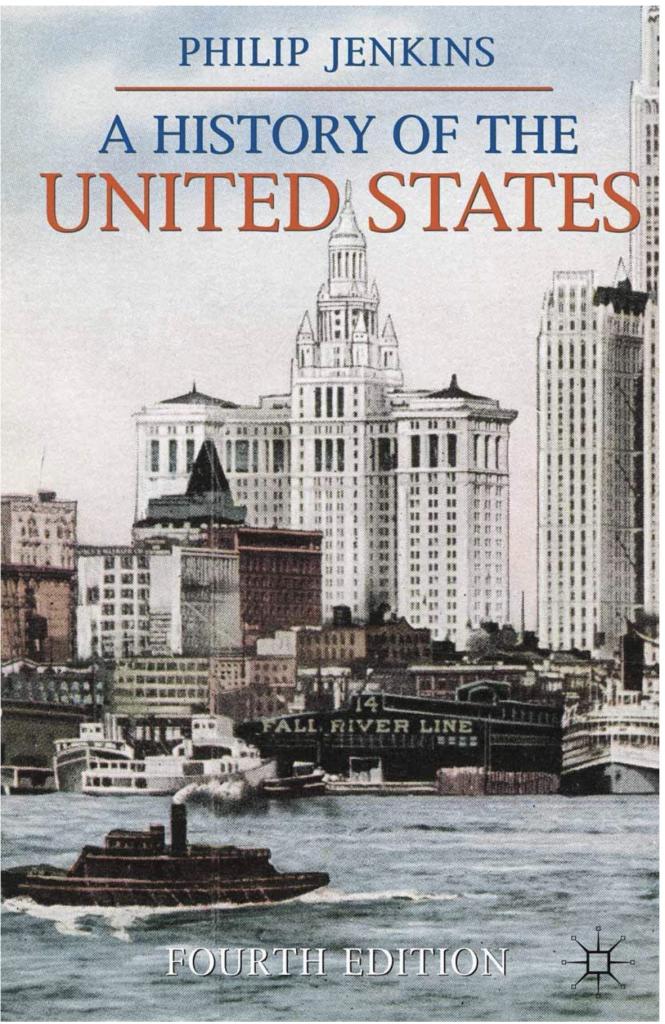As I have remarked in a couple of recent posts, I am currently writing a new and fully revised sixth edition of my History of the United States, which originally appeared in 1997: the new version will be published by Bloomsbury. Looking back at those earlier versions brings out some points about recent American history that really strike me. They also have a large effect on just how we produce history books during a revolution in teaching as much as writing.
I was writing that first edition back in 1995-1996, and it was a very different time. As I had in the book so stressed the importance of apocalyptic and radical religious thought as a driving force throughout American history, I had a perfect conclusion (I thought) in my final section on the Waco siege and massacre of 1993, and the Oklahoma City bombing of 1995. That seemed to offer a kind of symbolic culmination of American history, at least at that point.
To underline that difference with earlier times, I offer one illustration of a world that now seems about as remote as those of Nineveh and Tyre. In 1996, the first stirrings of a move to permit same sex unions led conservatives to propose a federal law to define marriage as strictly confined to the relationship of one man and one woman. This Defense of Marriage Act, DOMA, was supported by Vice President Al Gore, and it passed both Houses by crushing margins: 342 to 67 in the House, 85 to 14 in the Senate. Today, anyone in public life who reasserted the principles of DOMA would place themselves at an extreme conservative fringe of opinion, and would likely exclude themselves altogether from political life. That is a gauge of the sweeping revolution in concepts of sexuality and gender that have occurred in a time that historically, is the blink of an eye. The scale and rapidity of change are close to inconceivable for anyone aged under thirty. My lord, that demands a lot of writing and interpretation in covering the events of the past quarter century.
Moreover, when covering the events of this present century, we really need to think about the nature of the present, and how history keeps on happening. That might sound like an obvious comment, but it is very tempting for writers or professors who speak of “now” or “today” to refer to events that happened quite a few years back. If writing about vaguely contemporary events, it is always helpful to ask yourself: “What was the date ten years ago?”, and the current answer would be “2013.” Surely, we think, our readers are going to be thoroughly familiar with references we draw from such a recent date? But even so, that is a full decade gone. By way of illustration, babies who were born after the terror attacks of September 11, 2001, will be graduating college this coming Summer of 2024. Next Fall, the new intake of undergraduates were born in 2006, which was in George W. Bush’s second term. Their personal memories of, say, the late 1990s, are, well, limited. More seriously, they will have very sparse memories of any US president except for Trump and Biden. Do not assume that they have any great sense of the realities of 2013. And oh my, popular culture references date very rapidly indeed.
As recently as 2012, it was still possible for Mitt Romney to warn about the aggressive intentions of Vladimir Putin, only to have Barack Obama smack him down scornfully for advocating such a hopelessly dated 1980s-era foreign policy. As if modern-day Russia was suddenly going to become some kind of aggressive adventurist rogue state! The very idea… It was a different world. Just because the date starts with a 20- does not make it contemporary.
What a difference a decade makes. And how much more does a quarter century or more.
I see that when I look back at the reviewers’ comments on the original draft of my 1997 History. Many of the comments made great sense, but a couple make for fun reading today, notably (I paraphrase) “There’s far too much about Indians”; “You spend way too much time on the Hispanic roots of the west and south-west”; And “Why do you have all these rants about the evils of the drug war?” In the most recent go-round, the criticism is that I don’t have enough on those Hispanic roots, and I am now required to have a whole free-standing chapter on Native Americans (which I have happily added). On the calamitous drug war, I really would not change my views from that much earlier epoch.
But looking at that early date also brings home with a certain shock value just what we did not have access to in 1997. No, I don’t just mean South Park (premiered 1997) but other even more significant artefacts of advanced civilization, such as Netflix (1997), Google (1998), or Wikipedia (2001). The exact origins of the phrase “social media” are murky, but around 1994-95 would be a good guesstimate. So fundamental have they become to shaping popular consciousness that it is difficult to recall just how very new some of the leading electronic institutions are: Facebook, Youtube, and Twitter all debuted between 2004 and 2006, and the process of creation and innovation has continued unchecked ever since. Instagram dates only from 2010, while the word “selfie” was coined in 2002. So important was the Internet obviously going to be that in 1998, Apple designed the IMac to maximize access. This then-shocking all-in-one device did not have a hard drive separate from the monitor, frequently provoking the baffled question “But where is the actual computer?” Can you imagine such a radical departure from what God intended computers to look like?
Yes, PDAs did exist at the turn of the century, and the pioneering Blackberry was 1999. But the first real cellphone in any modern sense was the IPhone of 2007, a date that marks a pivotal date in cultural history, no less than technological. Arguably, that is the most significant event of the 21st century to date (Discuss!)
But think what all that means for practical aspects of studying history. In my original edition, I included the text of such critical documents as the Declaration of Independence, on the grounds that it might not be easy for students to get hold of it. Now, of course, you assume that anyone with Google and a cellphone can get pretty much anything like that close to instantaneously.
Beyond not needing to include documents, that technological shift has to change how we conceive the purpose and content of a textbook, which has to be far more than a barrage of names and dates and statistics that you can get simply from Wikipedia – or indeed, from ChatGPT. Any worthwhile text has to shift fundamentally from what to why. It has to offer a conceptual framework, to show how to study the debates over key themes and issues, and to offering the means to understand and pursue those arguments. It has to be much more about teaching thinking.
That is the textbook revolution, and that is what I am presently trying to cope with. The scale of the shift is only obvious when you actually sit down and compare present realities with those of the previous millennium. And it really does feel like an earlier millennium – maybe an earlier geological epoch.















